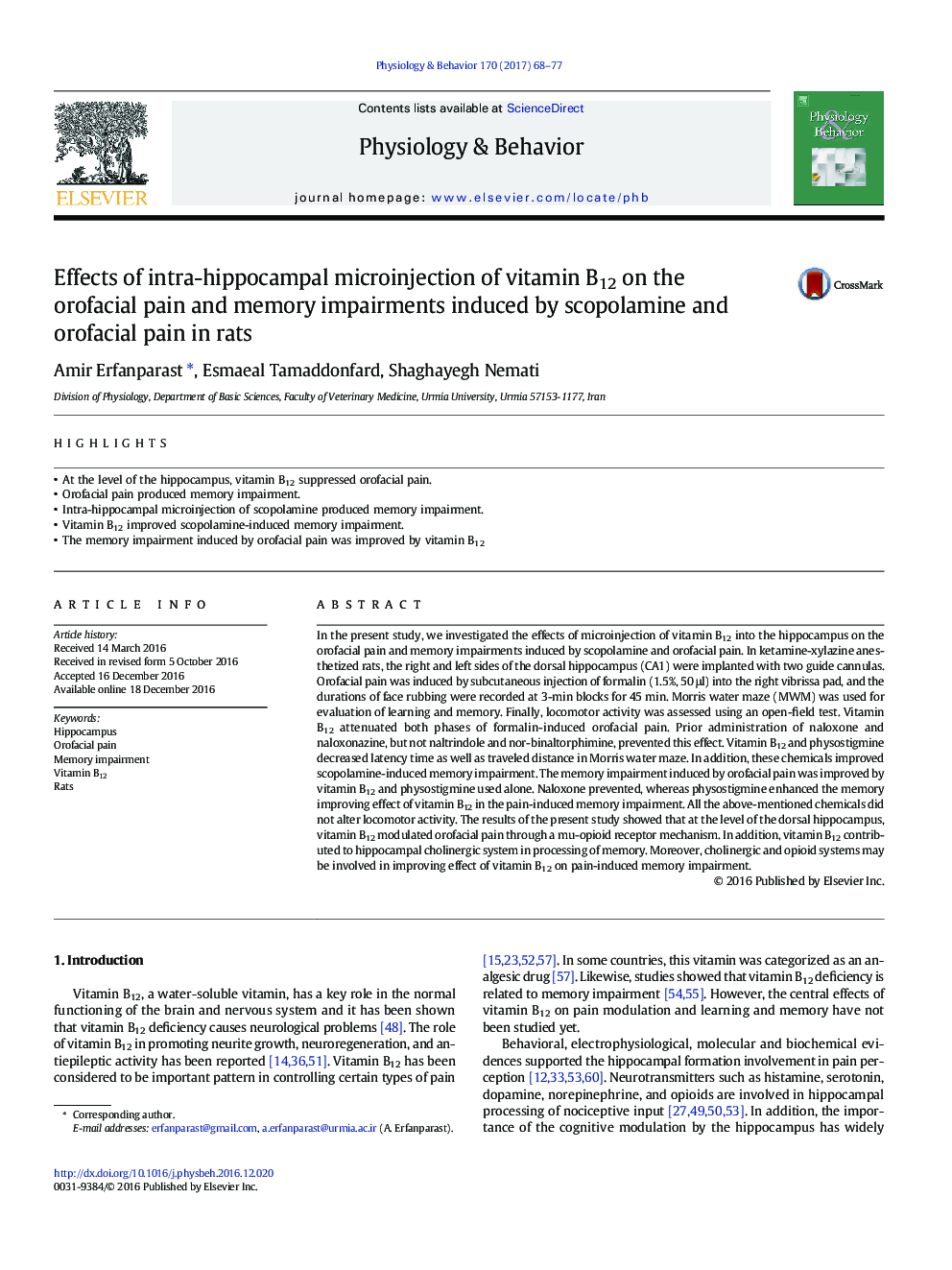| Article ID | Journal | Published Year | Pages | File Type |
|---|---|---|---|---|
| 5593801 | Physiology & Behavior | 2017 | 10 Pages |
Abstract
In the present study, we investigated the effects of microinjection of vitamin B12 into the hippocampus on the orofacial pain and memory impairments induced by scopolamine and orofacial pain. In ketamine-xylazine anesthetized rats, the right and left sides of the dorsal hippocampus (CA1) were implanted with two guide cannulas. Orofacial pain was induced by subcutaneous injection of formalin (1.5%, 50 μl) into the right vibrissa pad, and the durations of face rubbing were recorded at 3-min blocks for 45 min. Morris water maze (MWM) was used for evaluation of learning and memory. Finally, locomotor activity was assessed using an open-field test. Vitamin B12 attenuated both phases of formalin-induced orofacial pain. Prior administration of naloxone and naloxonazine, but not naltrindole and nor-binaltorphimine, prevented this effect. Vitamin B12 and physostigmine decreased latency time as well as traveled distance in Morris water maze. In addition, these chemicals improved scopolamine-induced memory impairment. The memory impairment induced by orofacial pain was improved by vitamin B12 and physostigmine used alone. Naloxone prevented, whereas physostigmine enhanced the memory improving effect of vitamin B12 in the pain-induced memory impairment. All the above-mentioned chemicals did not alter locomotor activity. The results of the present study showed that at the level of the dorsal hippocampus, vitamin B12 modulated orofacial pain through a mu-opioid receptor mechanism. In addition, vitamin B12 contributed to hippocampal cholinergic system in processing of memory. Moreover, cholinergic and opioid systems may be involved in improving effect of vitamin B12 on pain-induced memory impairment.
Related Topics
Life Sciences
Biochemistry, Genetics and Molecular Biology
Physiology
Authors
Amir Erfanparast, Esmaeal Tamaddonfard, Shaghayegh Nemati,
